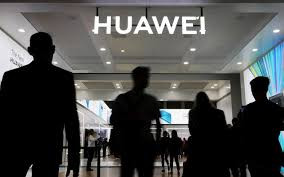A Nikkei poll showed 80% out of roughly 50 Japanese companies surveyed, like Sony and Panasonic, are still doing business with Huawei despite US ban.
The Chinese giant brings in more than $6 billion a year to the Japanese economy buying components for its smartphone.
With the figure having a possibility to be higher since the data doesn't include companies that declined to comment, the companies that continue to buy or sell from Huawei also include TDK and Kioxia, formerly Toshiba Memory.
This poll was conducted four months after the US Commerce department put Huawei on its Entity List preventing American companies from selling Huawei with sensitive technology.
In principle, the US ban also applies to products of non-US businesses as long as a particular product has more than 25% of its components like its parts, software or technology American-made.
With Huawei sourcing from Japanese suppliers and them wanting "to sell them more if they ask us to," the US-China trade talks this October has a lot on stake towards making headway not only for Japan but also for Huawei on this matter.
Twenty percent of Sony's 800 billion yen in yearly sales of smartphone camera image sensors are from Huawei, according to a securities analyst.
Sony said that their smartphone camera image sensors do not have more than 25% of its parts American.
This is also the same conclusion that capacitor supplier Murata Manufacturing and Panasonic have on the products they sell to Huawei.
Panasonic provides Huawei's electronic components and parts for manufacturing equipment.
Nidec and Apple supplier Japan Display are also still in business with Huwaei.
Still, there are other companies that either abandoned their plans of doing business with the China-based telecommunications giant or totally rejected the Chinese company's requests for big orders.
An insider was quoted as having the need "to be careful" even if products involved isn't in the list of American restrictions.
However, the Japanese companies that buy Huawei products are the ones that more likely change their attitude, unlike their Japanese supplier's counterparts.
Huawei was the fifth-ranked when it comes to overall smartphone shipments to Japan in 2018 with a 6.4 percent market share according to MM Research Institute.
Likewise, Huwaei had the biggest share of the market that same year for SIM-free smartphones.
This data might not continue if the US sanctions restrict Huawei's access to the widely used Google apps.
Fact is, NTT Docomo won't offer Huawei's smartphones with its 5G network and just like other Japanese carriers, Docomo is still only procuring 4G phones from the Chinese-based company.
SoftBank Corp. that uses Huawei base station for its 4G network also switched to European Ericsson and Nokia.





